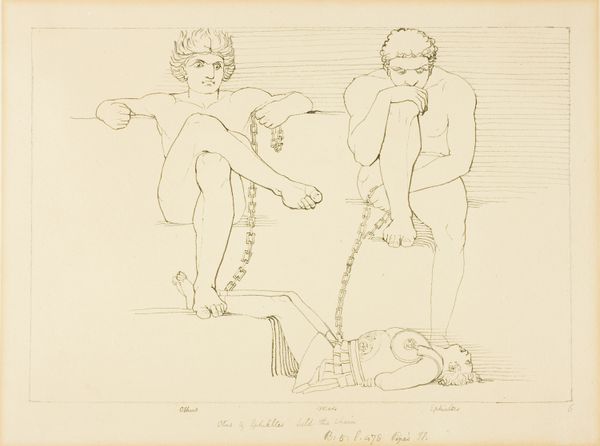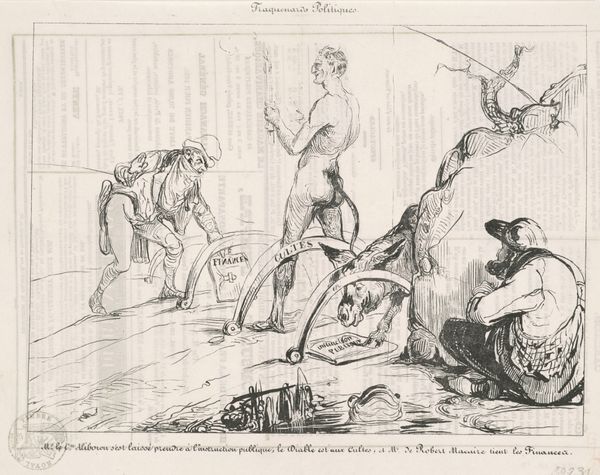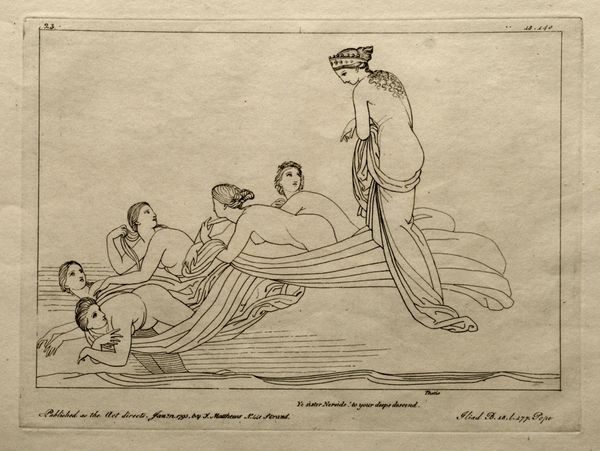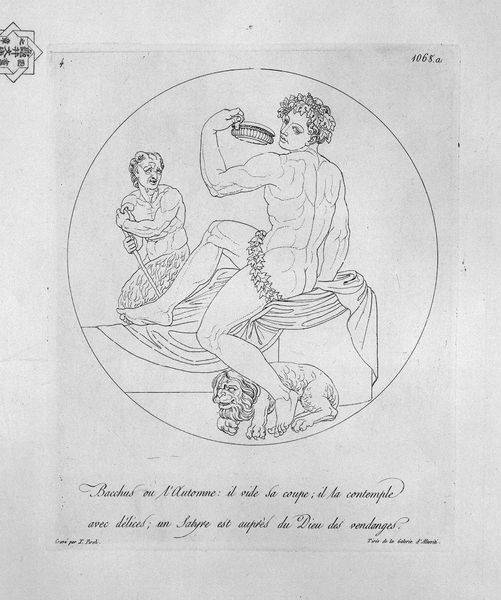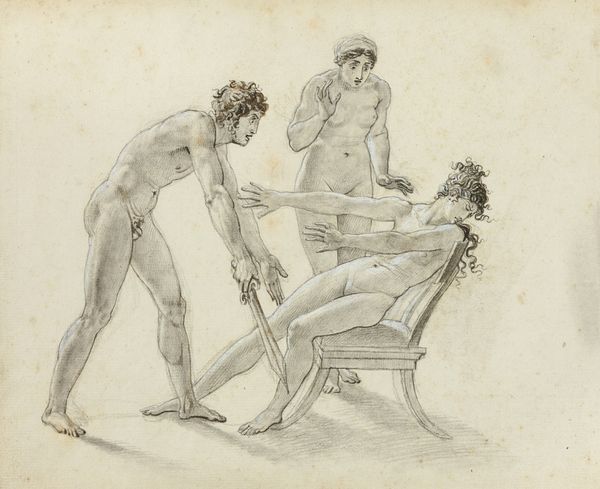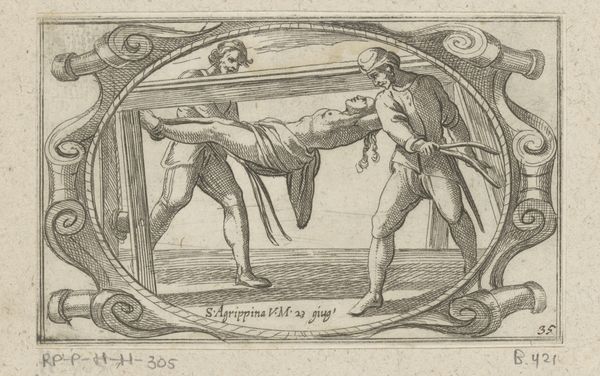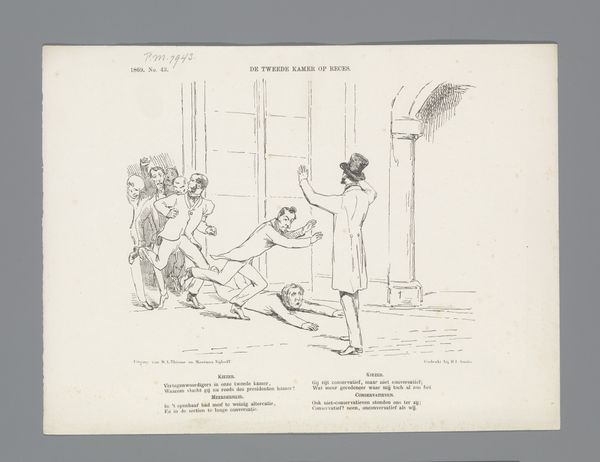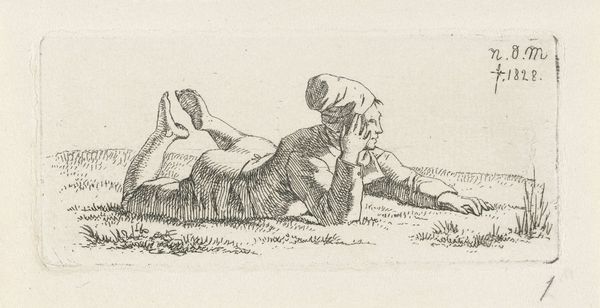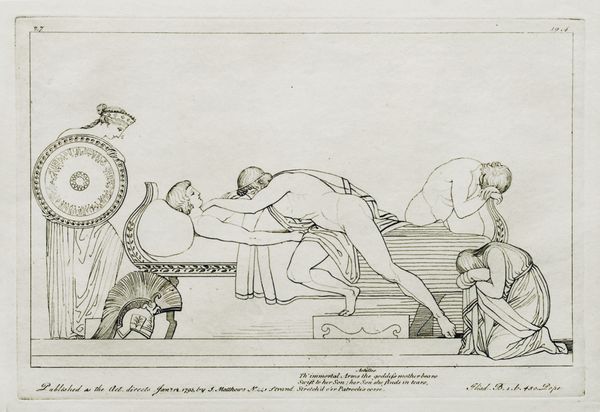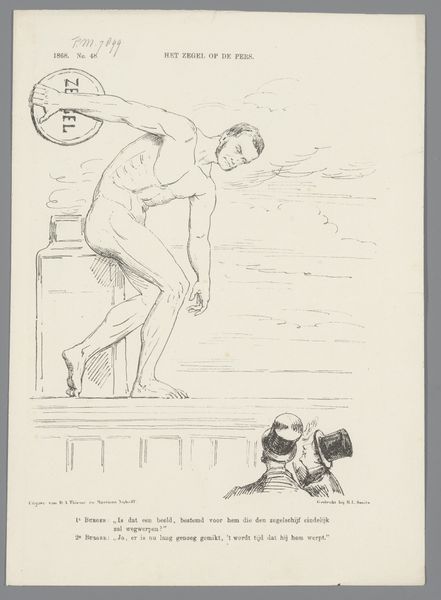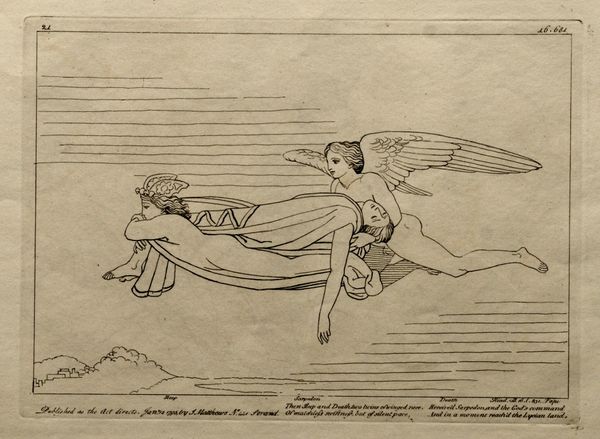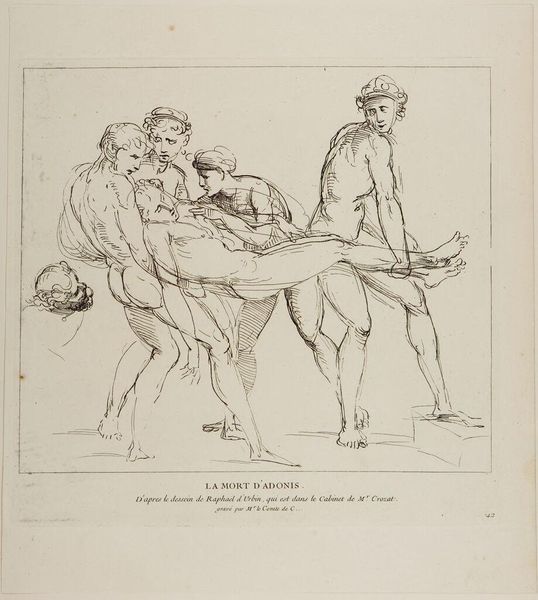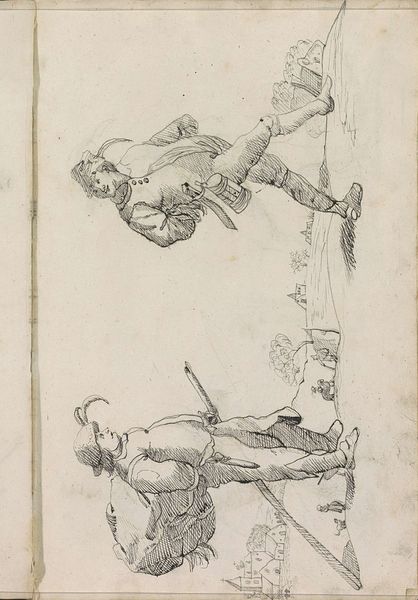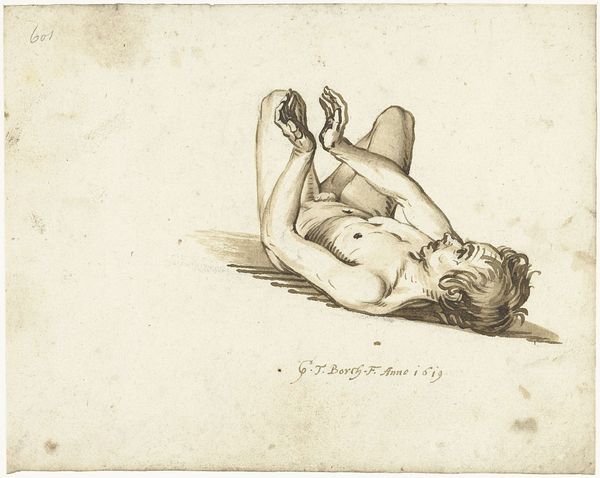
drawing, print, ink, engraving
#
drawing
#
neoclacissism
#
allegory
#
narrative-art
# print
#
pencil sketch
#
classical-realism
#
figuration
#
ink
#
line
#
history-painting
#
engraving
Copyright: Public domain
This illustration to the Iliad was created by John Flaxman. It depicts the giants Otus and Ephialtes holding Ares in chains. The chains are a powerful symbol. In Greek mythology, chains represent not just physical restraint but also the binding of divine powers. Consider how they reappear throughout history, such as in depictions of Prometheus chained to a rock, an image of defiance against the gods, or Christian iconography, where saints are sometimes shown breaking free from chains, symbolizing spiritual liberation. Here, the chains, forged from cultural memory, evoke a psychological state of tension. They speak to our subconscious fears of confinement and the struggle for freedom. The act of binding a god embodies a challenge to cosmic order, tapping into primal anxieties about power and control. This image is more than a narrative; it's a visceral engagement with the human condition. The motif of chains resurfaces time and again, each iteration echoing humanity's ongoing negotiation with its own limitations and aspirations.
Comments
No comments
Be the first to comment and join the conversation on the ultimate creative platform.
